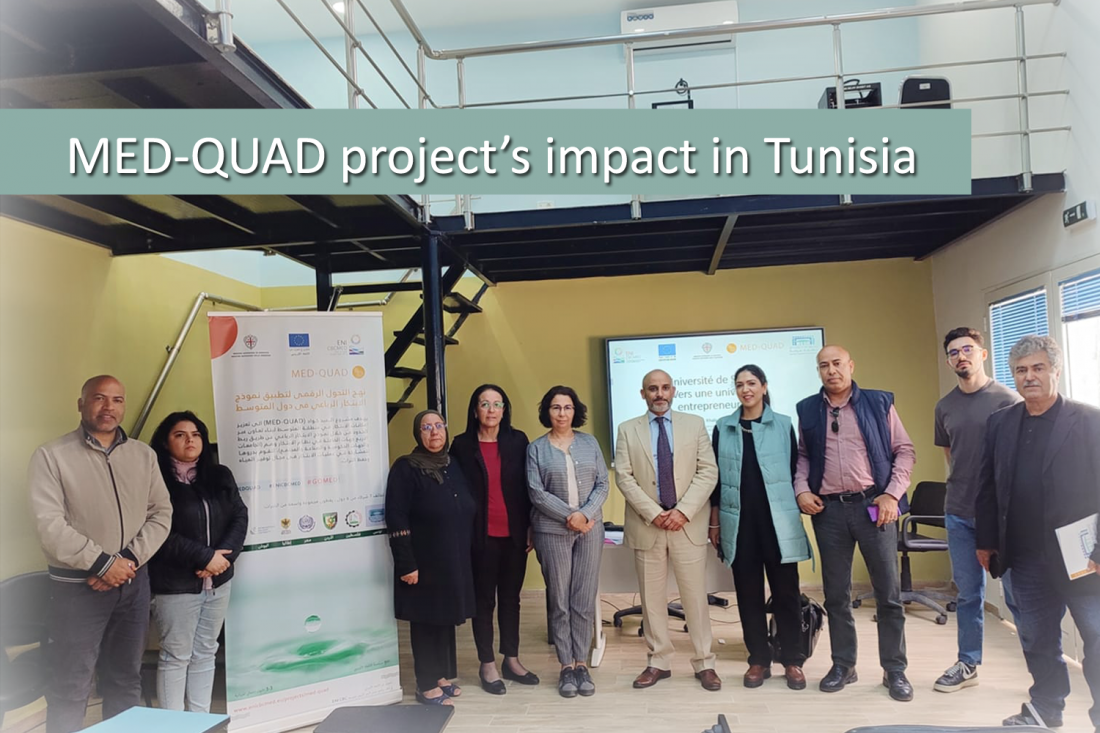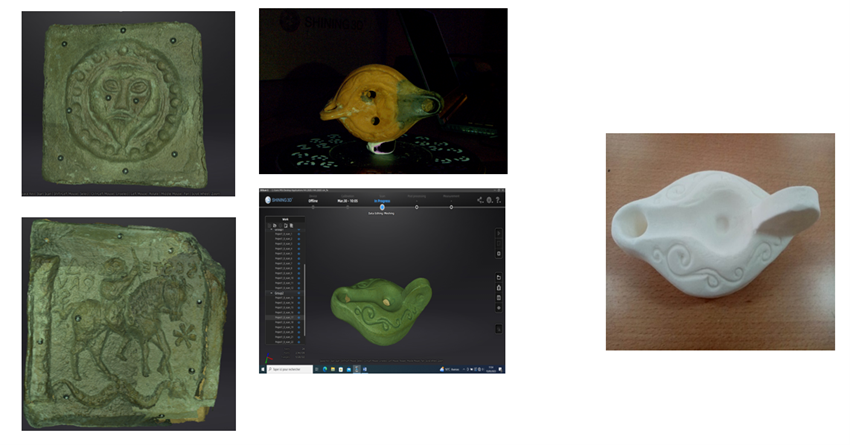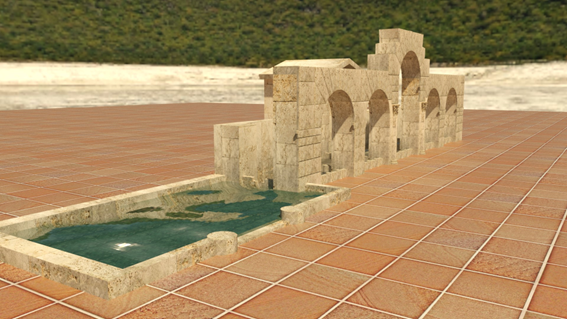MED-QUAD in Tunisia contributes to revive archaeological pieces and promote water quality control

The University of Sousse in Tunisia has gone through a positive change, all thanks to the collaborative efforts within the MED-QUAD project. This initiative has brought together various stakeholders both in participating Mediterranean countries and at the local level in Tunisia. In Tunisia, collaborations were enriched with the Museum of Sousse, local students, the Municipality of Sousse, and bilateral agreements with the National Institute of Patrimony (INP) and Small and Medium-sized Enterprises (SMEs) and other local entities. The result? Remarkable outcomes that touch upon various aspects of the region's development.
Professor Abdelatif Mrabet, representing the University of Sousse (project partner in Tunisia) is Staff Expert and responsible of the Applied Research for Cultural Heritage Exploitation - ARCHEO Living Lab were established in Tunisia. Prof. Mrabet highlights that the MED-QUAD project has yielded a treasure trove of achievements, encapsulated in the ARCHEO Living Lab deliverables. These accomplishments will leave an indelible mark on the cultural and academic landscape of the region.
The Museum of Sousse is set to receive exact copies of invaluable archaeological objects. These replicas will be instrumental in educational programs, including "museum classes" designed for students and general visitors. Among the replicated artifacts are "Roman oil lamps" and "terracotta tiles" that adorned the walls of regional churches during the 6th and 7th centuries, serving as valuable educational tools for archaeology classes. The project also includes copies of amphorae stamps on amphorae. These reproductions will contribute to a better understanding of stamping and the identification of the forms of the supports (typology). While primarily serving scientific purposes, these reproductions are indispensable for recognizing marks and identifying the workshops responsible for these artifacts. A significant milestone is the 3D reconstruction of the Roman city of Uppena (Chegarnia), located 35 km from Sousse. Once completed, this digital representation will be accessible online, benefiting on-site visitors and the Enfidha Museum. Lastly, the ongoing restoration of the house of Sorothus, adorned with mosaic-covered floors, is nearing its conclusion. These three categories of products significantly benefit the museum institution, society, and the economy through tourism, as well as the academic community in terms of research and education.
In the context of the MED-QUAD project, pivotal developments have also emerged through the "SWUAP" (Smart Water Use Applications) Living Lab. These innovations target critical issues related to water management and agriculture in the long term.
A groundbreaking achievement is the Water Quality Control system, which employs a multi-parameter device equipped with sensors to measure essential water quality parameters in real-time, including salinity, pH, and nitrates. This system ensures the continuous monitoring and maintenance of water quality in the region. To further enhance water use efficiency, an innovative irrigation management system has been designed. It relies on soil moisture sensors placed at various depths (1.2 meters) and climate sensors that gauge radiation, humidity, air temperature, among other factors. This cutting-edge system optimizes irrigation based on the specific needs of the plants. Moreover, the project addresses the pressing need for traceability of fruits and vegetables, enhancing consumer safety and transparency. A computer program has been developed for reading RFID tags attached to cultivated products, with this information easily accessible through an Android application.
These groundbreaking achievements are the result of a multidisciplinary approach, involving experts in agriculture and irrigation, technology and software development, measurement and sensor skills, and close collaboration with local farmers who have put these innovations to the test in real-world conditions.
The scientific team of the University of Sousse into a cross-border collaboration developed these products and services in a multidisciplinary environment, collaborating closely with experts in the following areas:
- Agriculture and Irrigation Expertise: collaboration with agronomists and irrigation experts to understand plant needs and develop effective irrigation strategies.
- Technology and Software Development: cooperation with software engineers who developed the Android application and RFID tag reading program.
- Measurement and Sensor Skills: engagement of specialists in measurement and sensors to ensure the reliability of data collected by our measurement devices.
Intersectoral Collaboration: establishment partnerships with local farmers to test our products in the field and gather user feedback.
The MED-QUAD partner from Tunisia has set the stage for a brighter, more innovative future in the region, and its team look forward to the positive outcomes that lie ahead.

Usiniversity of Sousse MED-QUAD project working group
3d Reconstructions
3d reconstruction









